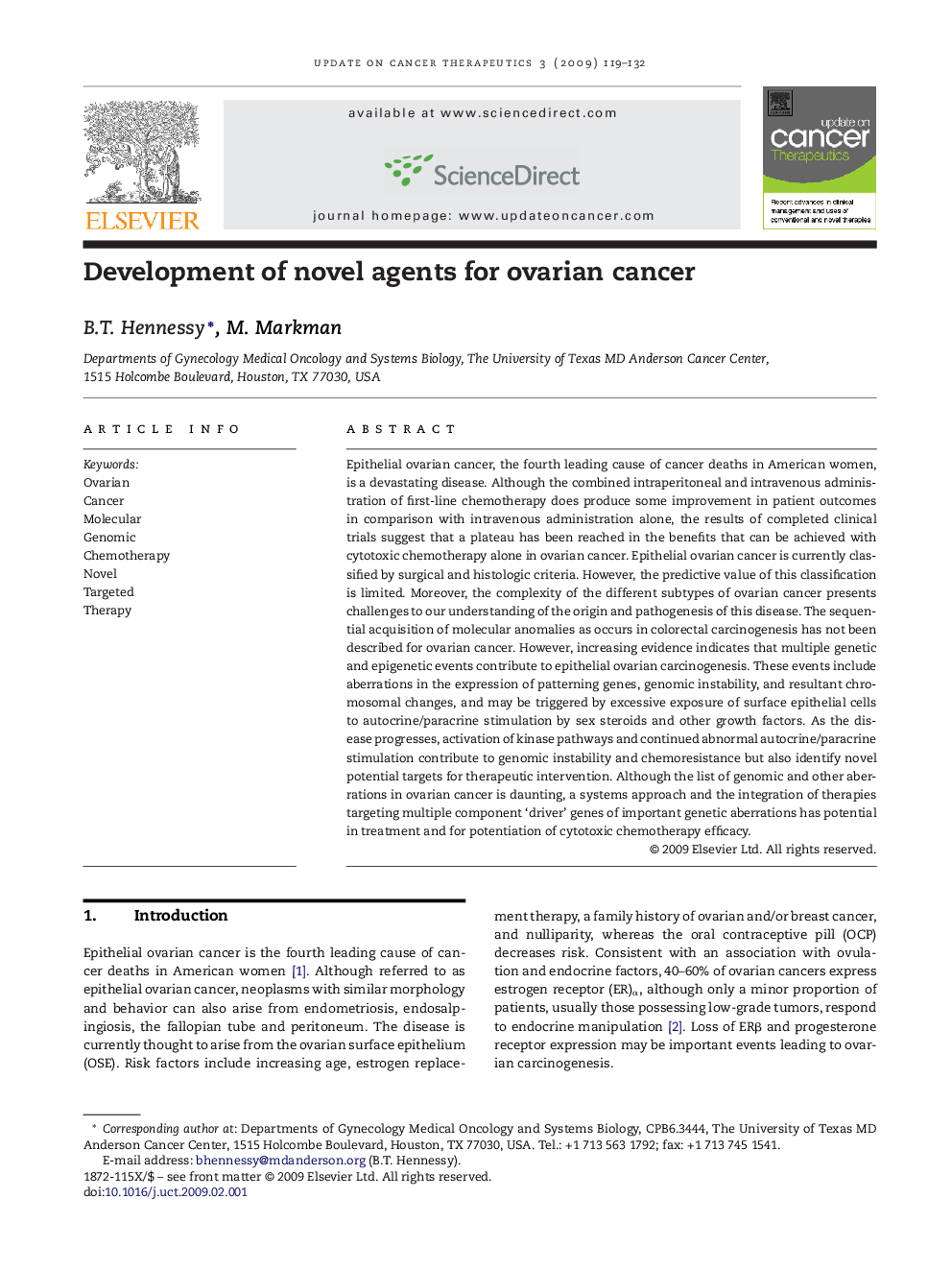| Article ID | Journal | Published Year | Pages | File Type |
|---|---|---|---|---|
| 2164192 | Update on Cancer Therapeutics | 2009 | 14 Pages |
Epithelial ovarian cancer, the fourth leading cause of cancer deaths in American women, is a devastating disease. Although the combined intraperitoneal and intravenous administration of first-line chemotherapy does produce some improvement in patient outcomes in comparison with intravenous administration alone, the results of completed clinical trials suggest that a plateau has been reached in the benefits that can be achieved with cytotoxic chemotherapy alone in ovarian cancer. Epithelial ovarian cancer is currently classified by surgical and histologic criteria. However, the predictive value of this classification is limited. Moreover, the complexity of the different subtypes of ovarian cancer presents challenges to our understanding of the origin and pathogenesis of this disease. The sequential acquisition of molecular anomalies as occurs in colorectal carcinogenesis has not been described for ovarian cancer. However, increasing evidence indicates that multiple genetic and epigenetic events contribute to epithelial ovarian carcinogenesis. These events include aberrations in the expression of patterning genes, genomic instability, and resultant chromosomal changes, and may be triggered by excessive exposure of surface epithelial cells to autocrine/paracrine stimulation by sex steroids and other growth factors. As the disease progresses, activation of kinase pathways and continued abnormal autocrine/paracrine stimulation contribute to genomic instability and chemoresistance but also identify novel potential targets for therapeutic intervention. Although the list of genomic and other aberrations in ovarian cancer is daunting, a systems approach and the integration of therapies targeting multiple component ‘driver’ genes of important genetic aberrations has potential in treatment and for potentiation of cytotoxic chemotherapy efficacy.
